Identity theft is a serious concern for individuals not only in the US but globally. Identity theft issues have been a common concern for several years and its frequency has sky-rocketed in the past few years. So much so that the market for identity theft protection services is expected to reach $28 billion by 2029.
As we begin the year 2024, the current identity theft statistics in the country appear to show another year of ever-increasing cybersecurity issues. Let us take a quick look at some facts as to why identity theft is a growing problem in the United States.
Identity Theft Statistics: The Fast Facts
- The FTC received 5.7 million total fraud and identity theft reports, 1.4 million of which were identity theft cases
- Government Documents or Benefits Fraud tops the list of identity theft types with 395,948 reported cases
- Georgia reported the most identity theft cases
- The median loss of fraud cases for victims is about $500
- Total losses are estimated to be $10.2 billion
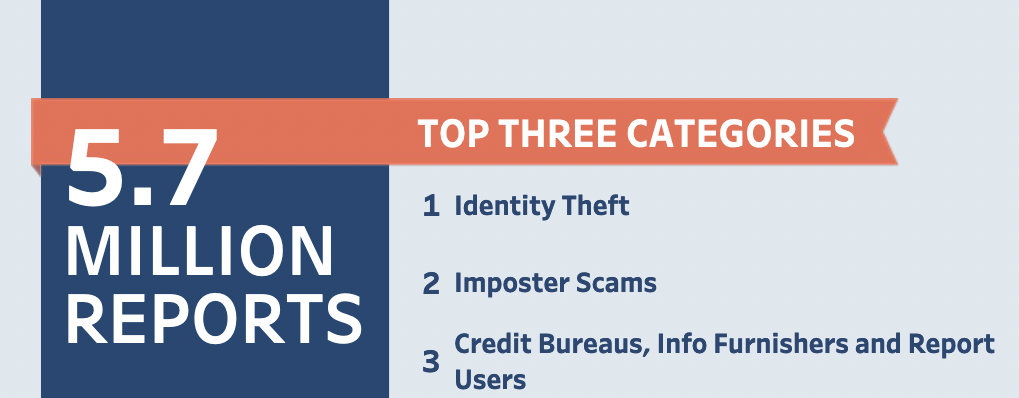
Identity Theft Statistics, Data, and Facts for 2024
Identity theft scenarios are increasing drastically in 2024. Take a look at the development of these identity theft cases in the past few years to get a clearer idea of the current situation.
The FTC Received 1.4 Identity Theft Reports
Of the total 5.7 million cases reported to the FTC, 1.4 million (25%) were specific to identity theft. The FTC classifies identity theft into a specific category in its reporting that is separate from fraud.

Total Fraud and Identity Theft Cases Have Nearly Tripled Over the Last Decade
Identity theft and fraud cases have been steadily increasing over the past decade.
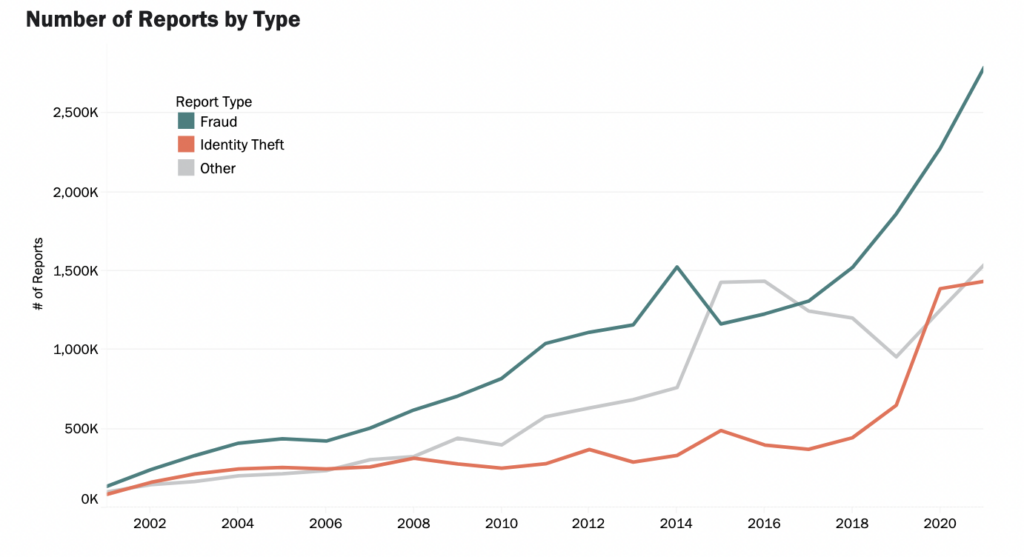
Cybercrime Losses Totaled $10.2 billion
According to the FBI, total cybercrime losses are estimated to be $10.2 billion. This is nearly double the amount of the previous year ($6.9 billion).
The Median Loss to Fraud Victims is $500
With a $500 median loss, the cost to victims is growing as we become more digitally dependent.

5.7 Million Cases of Fraud and Identity Theft Were Reported to the FTC
The FTC received 5.7 million reports of identity theft and fraud, up from 4.7 million the previous year.
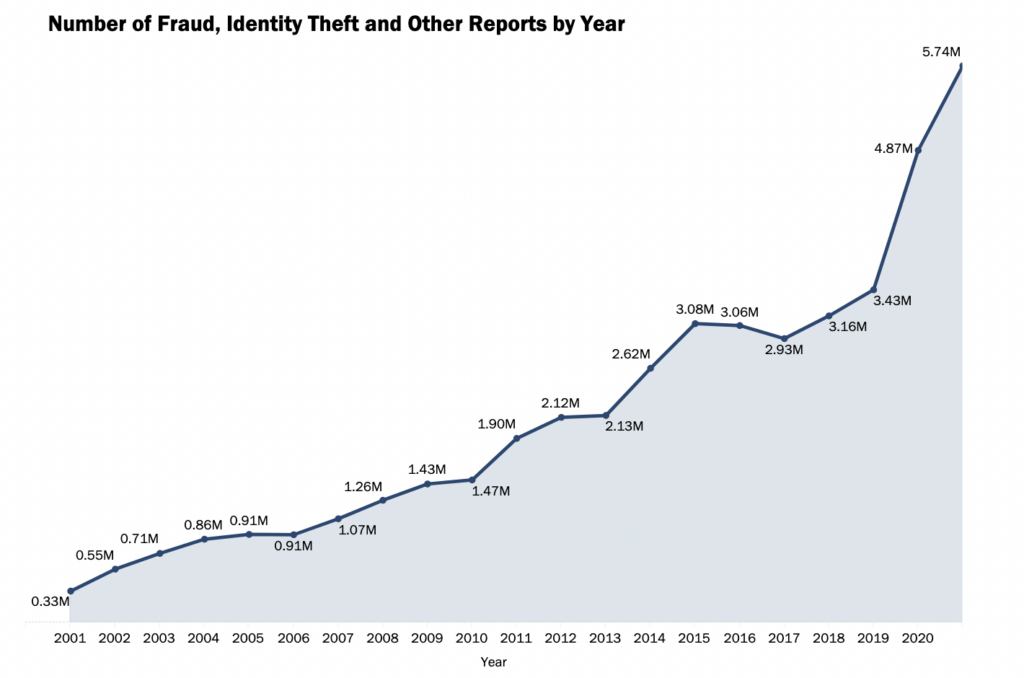
There is an Identity Theft Case Every 22 Seconds
Identity theft cases are at an all-time high, because of a wider range of identity theft methods. Simple methods such as traditional identity theft, to more complicated ones like synthetic identity theft, are all increasing.
Experts believe that these cases occur so often that there is a new victim every 22 seconds. Most studies indicate that this ratio will increase in 2024, making it a bigger issue for Americans.
Total Credit Card Fraud Cases Decreased to 389,737
Total credit card fraud cases were 389,737 which was actually down from 393,737 the previous year.
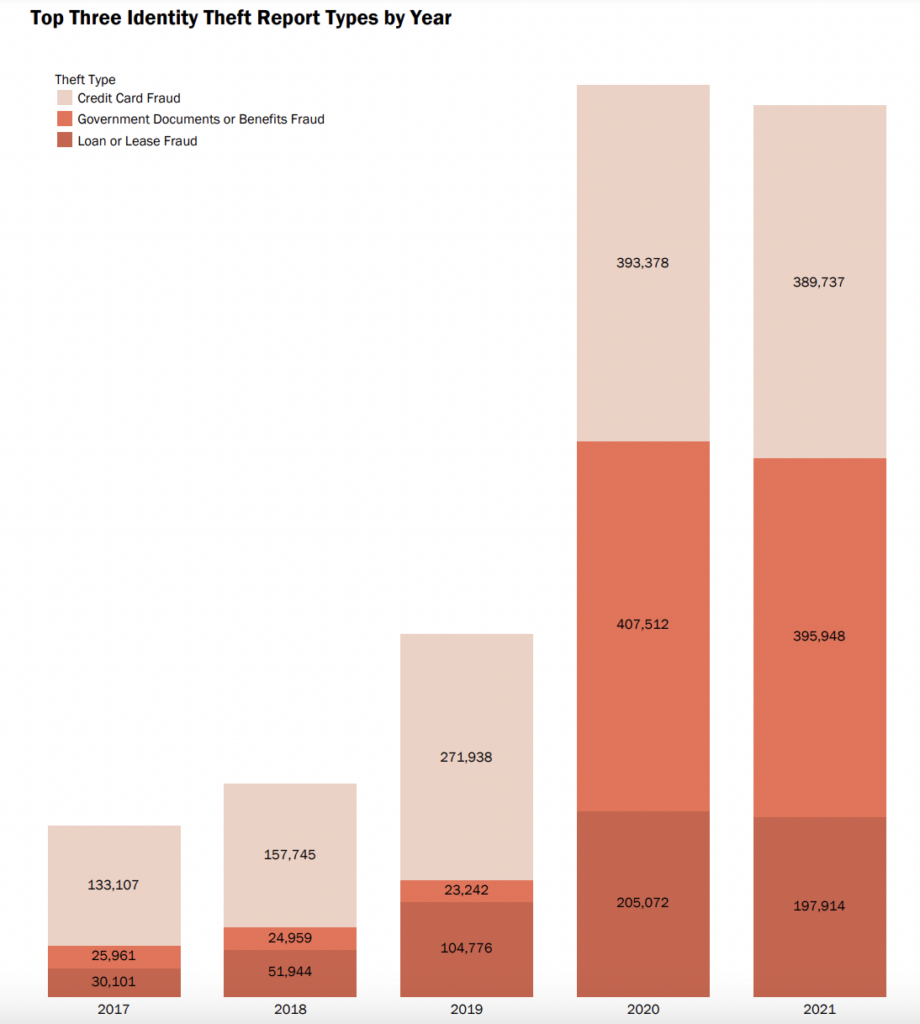
33% of Americans Faced Some Form of Identity Theft at Some Point in Their Lives
The number of identity theft scenarios in the U.S. is nearly 3 times higher than in other countries. Reports indicate that nearly 33% of Americans have faced some kind of identity theft attempt in their lives. Experts indicate that this number could increase significantly this year.
Consumers Aged 30-39 Were the Most Victimized
Those who fall into the age range of 30-39 were most victimized by identity theft.
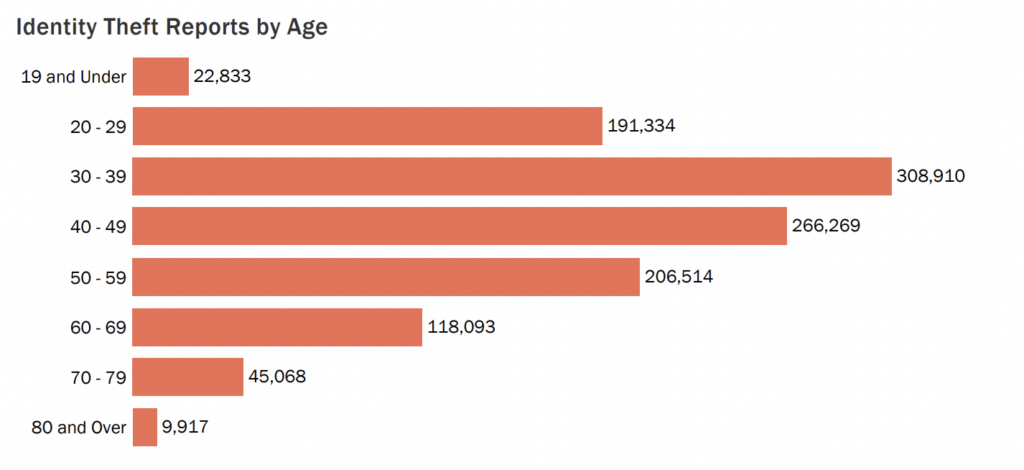
Georgia Ranked #1 for Identity Theft and Fraud Cases
Per capita, Georgia was the most victimized by identity theft and fraud, followed closely by Maryland and Delaware.
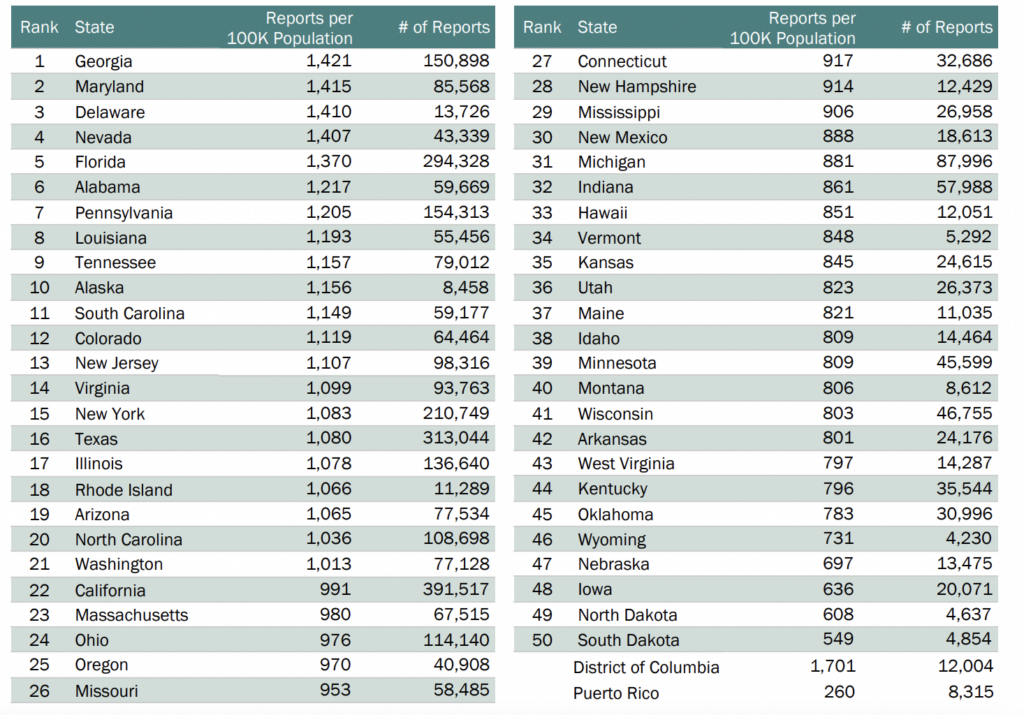
Bottom Line
Identity theft has been a growing problem in the U.S. for the past few years. It is difficult for victims to deal with these issues because theft methods are becoming even more sophisticated with time. Citizens must safeguard their personal information by utilizing technology such as antivirus protection software, password managers, identity theft protection, and VPNs if they want to avoid identity theft scenarios in 2024.
Related Research and Statistics
- 2024 Credit Card Fraud Statistics
- 2024 ID Theft Crime Statistics and Sentencing
- Phishing Statistics for 2024
- Cyber Security Statistics for 2024
2024 Data Sources